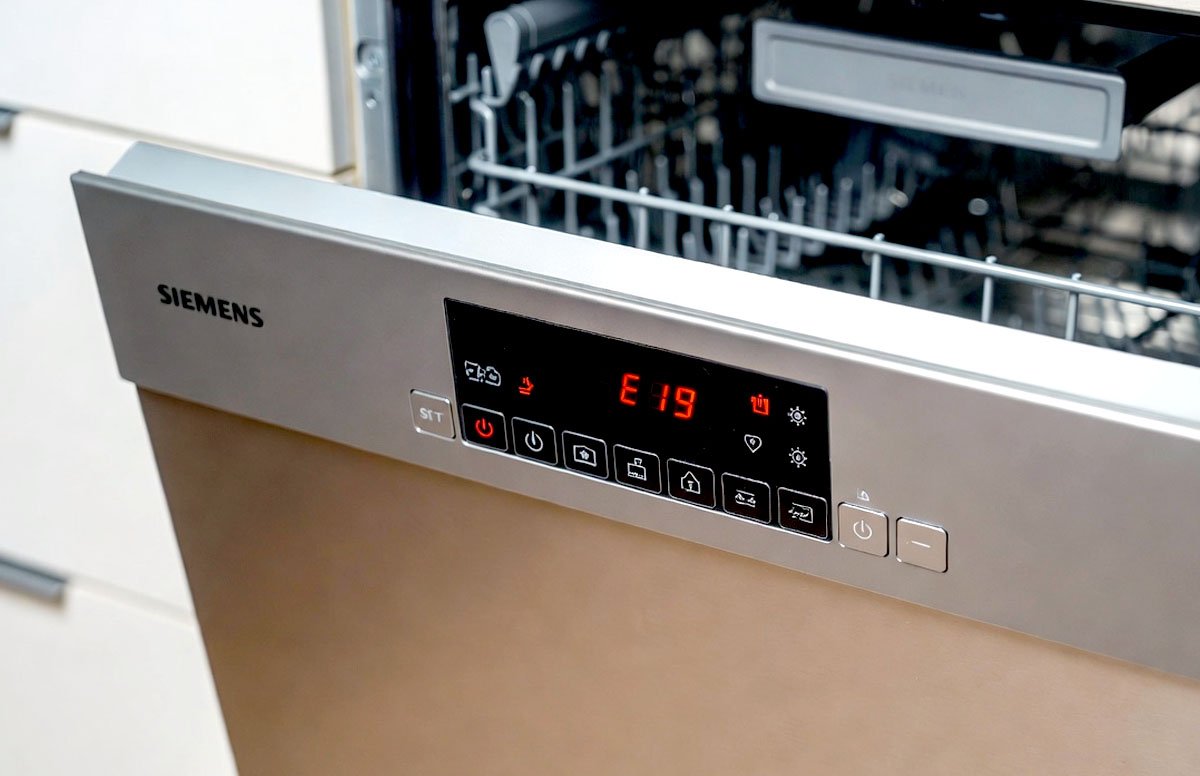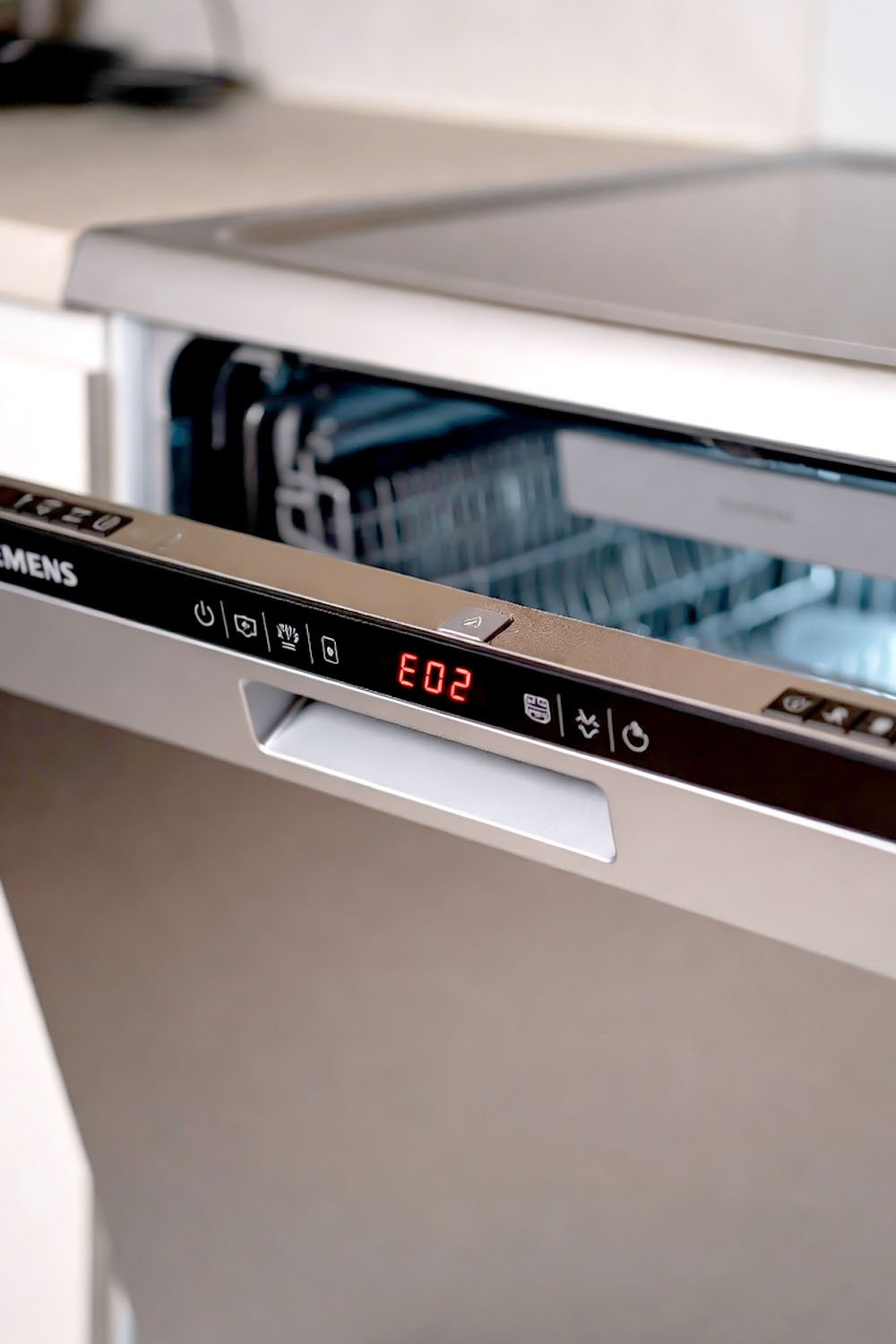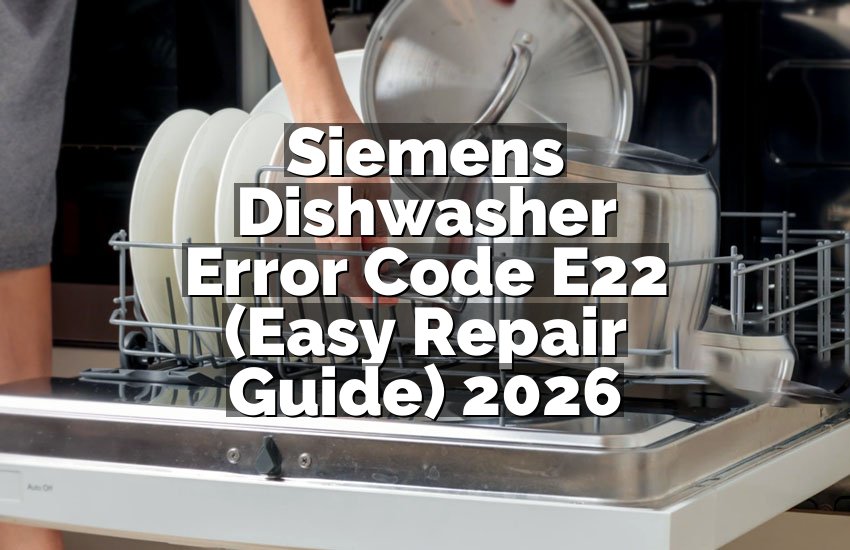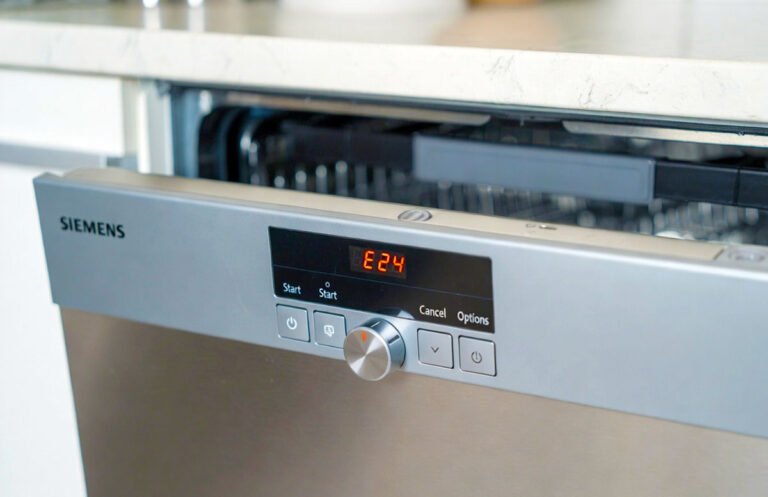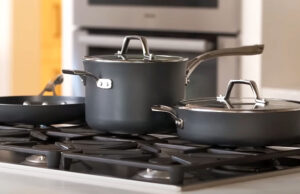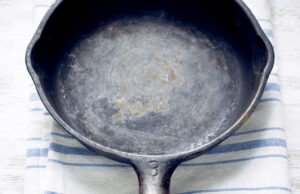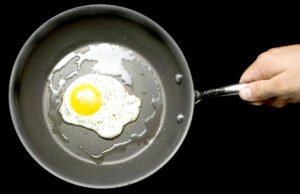As an Amazon Associate, I earn from qualifying purchases at no extra cost to you.
Are Dishwasher Pods Bad for Septic Systems? The Truth Revealed!
You might be wondering if those little dishwasher pods can really harm your septic system. You use them every day because they’re easy and mess-free, right? But suddenly, your drains slow down, or your septic tank smells weird. So, is it the pods? Yes, some dishwasher pods can be bad for septic systems, especially if they contain strong chemicals. In this article, you’ll get a clear and honest answer to help you choose what’s safe for your home and your septic system.
What Happens Inside a Septic System When You Use Dishwasher Pods
When you use a dishwasher pod, it seems like it just disappears with the water. But inside your septic system, something bigger is happening. A septic system is like a living system underground. It needs good bacteria to break down waste and keep your tank working smoothly. These bacteria are very sensitive. If you use harsh products, like strong chemical cleaners, bleach, or certain dishwasher pods, they can kill those good bacteria.
Now, many dishwasher pods contain chemicals to help clean your dishes fast. These can include bleach, phosphates, or other tough cleaning agents. When these chemicals go down your drain, they enter your septic tank. If the pods are not labeled as septic-safe, they might hurt your system over time. The chemicals stop the bacteria from doing their job. That means waste doesn’t break down as it should. It builds up, causes clogs, or even backups.
Also, dishwasher pods are made with a plastic-like outer layer that dissolves in water. Most of the time, this layer is safe. But sometimes, if your dishwasher doesn’t get hot enough, it may not fully dissolve. These tiny pieces can end up floating in your septic tank and may even block the drain field.
Another problem is the number of pods you use. Using them daily adds a steady flow of chemicals into the tank. Over time, this can weaken the health of your septic system. You may not notice it right away, but after a few months or years, the damage shows up. You might need to pump your tank more often or even repair it.
People think that just because a product is sold in stores, it’s safe. But not all dishwasher pods are made with septic systems in mind. Some are designed for strong cleaning, not for gentle septic care. Always check the label. Look for ‘septic-safe’ or ‘biodegradable’. Even better, go for natural or eco-friendly options.
Some natural dishwasher pods use plant-based cleaning agents. These are gentler on your septic tank and the environment. They still clean your dishes well but won’t kill off the helpful bacteria in your septic system.
- Septic systems need healthy bacteria to work
- Harsh chemicals in pods can kill good bacteria
- Not all pods dissolve completely
- Chemicals build up over time and cause damage
- Choose septic-safe or natural pods
How to Know If Your Dishwasher Pod Is Safe for Septic Systems
You may have never looked at the label on your dishwasher pods. It’s easy to just grab what looks nice or is on sale. But now, you need to know if it’s safe for your septic system. First, flip the box or bag over. Look at the back where the ingredients and safety notes are. If it says ‘septic-safe’, that’s a good sign. But be careful. Just because something says ‘safe’ doesn’t always mean it really is.
Look at the ingredients. Avoid pods that include bleach, ammonia, or strong synthetic fragrances. These ingredients are too harsh. They kill the bacteria your septic tank needs. Instead, search for words like ‘plant-based’, ‘non-toxic’, ‘biodegradable’, or ‘eco-friendly’. These are better for both your dishes and your septic tank.
Some brands are certified by eco-labels. Look for symbols from places like EPA Safer Choice, Green Seal, or EWG Verified. These groups test products and make sure they are better for the environment and septic systems.
If you’re not sure about the ingredients, look them up. For example, sodium hypochlorite is just bleach. Phosphates are another big one to avoid. They can cause algae to grow in local water systems if they leak out. Also, they’re not friendly to the bacteria in your septic tank.
Another tip is to feel and observe the pod. If it’s very thick or feels too plasticky, it might not dissolve well. A good pod should melt away completely during the dishwasher cycle. If pieces are left behind, they might go down your drain and into your septic tank.
You can also do a simple test at home. Take a pod, drop it in a glass of warm water, and watch it. Does it fully dissolve? If not, your dishwasher might have the same issue. Incomplete dissolving can lead to small plastic clogs or chemical buildup.
Also, try to find reviews. Many people who use septic tanks leave reviews online. If they had a bad experience with a certain pod, they usually talk about it. This can help you make a better choice before you buy.
- Look for ‘septic-safe’ on the label
- Avoid bleach, phosphates, and ammonia
- Choose plant-based or biodegradable options
- Check for eco-friendly certifications
- Do a water glass test at home
- Read online reviews from septic tank users
What Ingredients in Dishwasher Pods Are Harmful to Septic Systems
Dishwasher pods are small but full of cleaning power. That power comes from strong chemicals. Sadly, some of those chemicals are not good for your septic system. The main ingredients to worry about are phosphates, chlorine bleach, synthetic surfactants, artificial dyes, and strong fragrances.
Phosphates help to clean hard water stains, but they’re very harmful. In your septic tank, they can mess up the natural balance. They stop bacteria from doing their job. Outside the tank, phosphates can end up in rivers and lakes and cause algae blooms. This hurts fish and plants.
Chlorine bleach is another strong cleaner in some pods. It’s good at killing germs on dishes but also kills the helpful bacteria in your septic system. A septic tank without bacteria will fill up faster and may even start to smell bad.
Synthetic surfactants are the foaming agents. They help remove food grease but can be too strong. Some are made from petroleum. These are hard to break down and may stay in your tank for a long time. That causes buildup and possible blockage in the drain field.
Artificial dyes and colors may not seem dangerous, but they’re not needed. They are made from chemicals that can be hard for the septic tank to handle. The more unnatural stuff that goes in, the harder it is for the system to keep working well.
Strong fragrances are added to make your dishes smell fresh. But the smell comes from chemical perfumes. These are not good for your septic system and can even cause skin problems for some people.
The worst part is that these chemicals don’t always go away after one wash. They collect in your septic tank. Over time, they can cause a thick layer of sludge that blocks your system. That means more pumping, more money, and more stress.
- Phosphates stop bacteria from breaking down waste
- Bleach kills helpful septic bacteria
- Surfactants are hard to break down
- Dyes and perfumes are not needed and can harm your tank
- Chemicals can build up and cause sludge
- Use simple ingredients to protect your septic
Better Alternatives to Dishwasher Pods for Septic Safety
If you’re worried about your septic tank, you don’t have to stop using your dishwasher. You just need safer options. One good idea is switching to liquid or powder dishwasher detergents that are labeled septic-safe. These often have fewer chemicals than pods.
You can also make your own dishwasher detergent at home. A mix of baking soda, washing soda, and citric acid can clean your dishes without harming your septic tank. It may take a little more time to mix, but it’s worth it for peace of mind.
Natural dishwasher pods are also available. Look for brands that use plant-based cleaners. These may cost a bit more, but they’re safer. They won’t kill bacteria or cause sludge in your septic tank. Some popular eco-friendly brands are Seventh Generation, Ecover, or Dropps. Make sure they say ‘septic-safe’ clearly on the box.
Another tip is to use less detergent. Sometimes, the dishwasher does not need a full pod. You can cut the pod in half or only fill the soap tray partway. Using less detergent means fewer chemicals going down the drain.
You should also rinse your dishes a little before putting them in the dishwasher. That way, less food waste ends up in your septic tank. Even if you use safe detergent, too much food waste can still clog your tank over time.
Also, run your dishwasher only when it’s full. This helps you use less water and less soap. It also gives your septic tank a break between washes. The less stress on the system, the longer it lasts.
- Try liquid or powder septic-safe detergents
- Make your own detergent with baking soda
- Use natural pods from trusted brands
- Use less detergent if possible
- Rinse dishes lightly before washing
- Run dishwasher only when it’s full
Common Septic System Problems Caused by Dishwasher Pods
If you’ve been using regular dishwasher pods for a while and have a septic tank, you may start to notice some problems. These problems may start small but can get worse over time.
One common issue is slow drains. This can happen when the chemicals in pods start building up and create thick sludge in your tank. The sludge then blocks the pipes that lead to your drain field.
Another problem is a bad smell coming from your sinks or yard. This happens when the bacteria in your septic tank die. Without bacteria, waste does not break down like it should. That leads to smell and even leaks in your yard.
You may also see water backing up into your home. This is serious. It means the septic tank is too full or blocked. Dishwasher pods with bleach or phosphates can lead to this if they’re used daily.
If you notice puddles or very green grass near your septic system, it could be leaking. That means the system is overloaded or damaged. Harsh dishwasher pods can be part of the cause.
Pumping your septic tank more often than normal is also a sign. If you had to pump it sooner than expected, check what kind of products you’re using, especially in your dishwasher.
- Slower drains from chemical buildup
- Bad smells from bacteria loss
- Water backup means blockage
- Yard puddles may show system leaks
- Early pumping may be caused by harsh pods
How to Keep Your Septic System Healthy While Using a Dishwasher
You can still enjoy clean dishes and protect your septic tank if you follow a few smart habits. First, always choose dishwasher products that are clearly marked septic-safe. This helps you avoid harmful chemicals from the start.
Keep your dishwasher clean. Run a cleaning cycle once a month using white vinegar. This clears out leftover soap, food bits, and grime. Clean machines use less soap and work better.
Do not overload your dishwasher with dishes or soap. Use only the amount of detergent that is needed. Too much soap adds more chemicals to your system.
Always scrape off big food chunks before loading dishes. Food waste can lead to more sludge in your septic tank. Less food means less stress on the system.
Space out your water usage. Try not to run your dishwasher at the same time as laundry. Too much water at once can overload your septic system and wash away helpful bacteria.
Have your septic tank checked and pumped every 3 to 5 years. A healthy tank lasts longer and gives you fewer problems.
Teach your family or housemates about septic safety. Everyone should know not to pour bleach or other chemicals down the drain. The same rule goes for the dishwasher.
- Always use septic-safe dishwasher products
- Clean your dishwasher monthly
- Use only needed detergent
- Scrape food before washing
- Spread out water usage
- Pump the tank every 3–5 years
- Teach others septic-friendly habits
Final Thoughts
Taking care of your septic system does not mean giving up your dishwasher. You just need to be more careful about what goes in it. Some dishwasher pods are bad for septic systems, especially if they have strong chemicals. But there are safe options too. With the right habits and products, you can enjoy clean dishes and a healthy septic system for years. Make smart choices today so you don’t face big problems later. It’s easy to protect your home when you know what to avoid and what to use.
Frequently Asked Questions (FAQs)
Is it safe to use dishwasher pods if I have a septic tank?
Yes, but only if the pods are labeled as septic-safe. Some pods contain chemicals like bleach and phosphates that can kill the bacteria in your septic tank. These bacteria are important for breaking down waste. Without them, your tank can fill up faster and cause problems like slow drains or bad smells. Always check the label and choose pods with natural or plant-based ingredients. Avoid anything with strong fragrances or artificial dyes. Using the right kind of pod helps keep your septic system working smoothly.
Can dishwasher pods cause septic tank failure?
Yes, they can over time. If you use dishwasher pods that contain harmful chemicals, they may kill the good bacteria in your septic tank. These bacteria help break down waste so the tank doesn’t fill too fast. Without them, waste builds up and may block the drain field. This can cause backups, bad smells, or even full septic failure. Using pods every day without checking the ingredients can make the damage worse. Always use septic-safe pods to prevent costly septic system damage.
Do I need to avoid all dishwasher pods for septic safety?
No, you don’t have to avoid all pods. You just need to pick the right kind. Look for pods that are labeled septic-safe or biodegradable. Choose brands that use plant-based cleaners instead of bleach or strong chemicals. Natural dishwasher pods are safe and still clean your dishes well. They protect your septic system and the environment too. Avoid pods with harsh chemicals or strong perfumes. With the right pod, you can still use your dishwasher without harming your septic tank.
Is it okay to use my dishwasher every day with a septic system?
Yes, it is okay if you are careful. Use septic-safe detergent and run your dishwasher only when it’s full. This saves water and reduces the amount of soap going into your septic tank. Avoid using other water-heavy machines like the washing machine at the same time. Too much water at once can stress your septic system. Also, make sure to clean your dishwasher monthly and scrape food from dishes before loading them. These habits help your septic tank stay healthy.
Can I make my own dishwasher detergent that is safe for septic?
Yes, making your own detergent is a good way to protect your septic system. You can mix simple ingredients like baking soda, washing soda, and citric acid. These clean your dishes without using harsh chemicals. They are gentle on your septic tank and better for the environment. Homemade detergent is also cheaper and easy to make. Just be sure not to add bleach or anything too strong. Many people who use septic systems find homemade cleaners work well and give them peace of mind.
Do I need to rinse dishes before putting them in the dishwasher?
Yes, you should scrape and lightly rinse your dishes. This keeps large food pieces from entering your septic tank. While dishwashers are designed to clean dirty dishes, too much leftover food can turn into sludge in your tank. Over time, this sludge can clog the pipes or fill your tank too quickly. By rinsing your dishes just a little before loading them, you help your dishwasher and protect your septic system too. It’s a small step that makes a big difference.
Is it better to use liquid or powder detergents instead of pods?
Yes, sometimes liquid or powder detergents are better for septic systems. They usually don’t have the dissolvable plastic coating that pods have. Some pods don’t fully dissolve and can leave behind small pieces that enter the septic system. Liquid and powder detergents give you more control over how much you use. Look for ones that are labeled septic-safe or eco-friendly. Always avoid products with bleach, phosphates, or strong perfumes. With the right detergent, you can keep both your dishes and your septic system clean.
Can using dishwasher pods increase the cost of septic tank pumping?
Yes, using the wrong dishwasher pods can cause you to need more frequent pumping. When harsh chemicals enter your tank, they kill the helpful bacteria. This causes waste to build up faster. If the tank fills up too soon, it needs to be pumped earlier than normal. That means extra cost and more stress. Choosing septic-safe pods helps keep your tank working longer and saves you money in the long run. Always read the label before you buy any dishwasher product.

